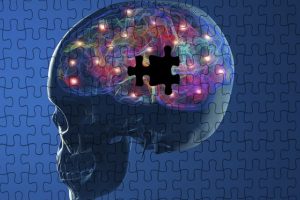Diagnostic debriefing to a fictional patient in 2042

That was the question Alberto Espay, MD, sought to answer in a recent essay that won Lancet Neurology's 20th anniversary essay competition. The essay, "Your After-visit Summary: May 29, 2042" revolves around the diagnostic debriefing to a fictional patient of his new diagnosis of Parkinson's disease 20 years from now, with biomedical analysis of test results informing a tailored treatment plan.
In the essay, Espay tells the patient that while symptoms such as slow walking, difficulty typing, intermittent forgetfulness and constipation all suggest what has clinically been diagnosed as Parkinson's disease for more than 100 years, blood sample analyses provided more detailed information on how to personalize and guide treatment.
Rather than saying, 'You have Parkinson's based on my experience; trust me,' we will be saying, 'You have something we have called Parkinson's, but have no idea what it means. We would engage in identifying the biological drivers of each person affected, recognizing that treatments to slow progression can only succeed if tailored to those most biologically suitable to benefit."
Alberto Espay, James J. and Joan A. Gardner Family Center for Parkinson's Disease Research Endowed Chair, Department of Neurology and Rehabilitation Medicine, College of Medicine, University of Cincinnati
Espay said he was thrilled to win the competition "because it meant that the vision of the essay, a picture vastly different than what we have been doing in caring for our patients, could gain currency with a global readership of neurologists."
According to Espay, medicine is about a decade away from realizing the vision of his essay. He adds the essay was inspired by work currently in progress by the Cincinnati Cohort Biomarker Program (CCBP), which is trying to unravel the individual biological abnormalities of those affected with neurodegenerative disorders.
"We are interested in uncovering that which is different between people affected, and what can be used to 'match' them with therapies already available for repurposing," Espay said. "In fact, we are developing bioassays of therapies developed over the last few decades that proved futile in clinical trials but which we know there are some out there that could benefit from them. CCBP will allow us to find who they are, so that we can treat them.
"Ultimately, the clinical diagnosis is but a human-made construct about which nature has no idea," Espay continued. "And since nature can't be fooled, we need to be agnostic to our labels and subtype individuals with neurodegenerative disorders according to their biology, not the classification we have used at the bedside for over a century."
University of Cincinnati
Epsay, A. J (2022) Your After-Visit Summary—May 29, 2042. The Lancet Neurology. doi.org/10.1016/S1474-4422(22)00129-6
Posted in: Medical Condition News | Healthcare News
Tags: Biomarker, Blood, Constipation, Diagnostic, Medicine, Neurology, Parkinson's Disease, Research, Walking
Source: Read Full Article




